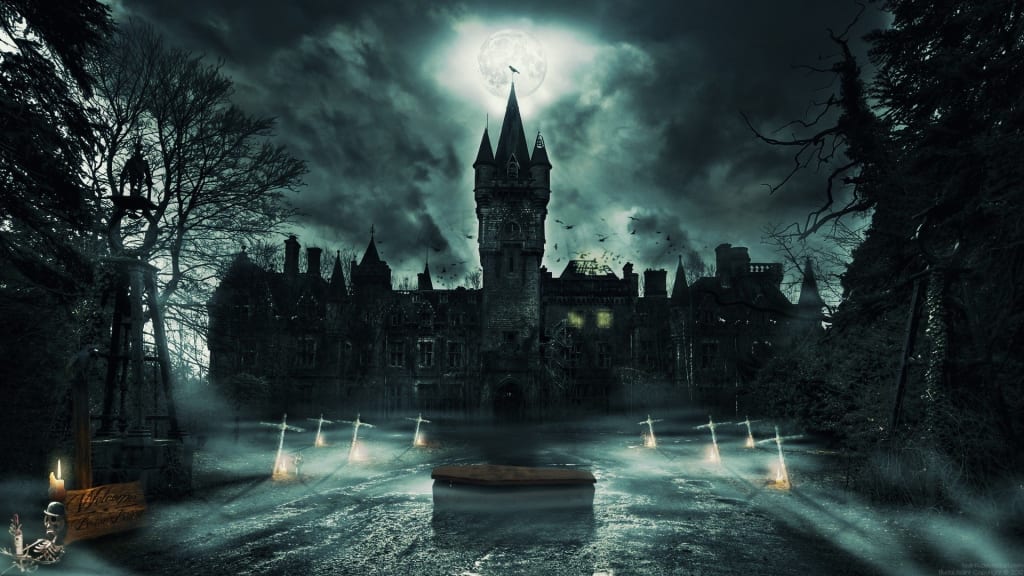The Dangers of Being Alone in Gothic Fiction
Being alone is dangerous. It’s rare to read a Gothic book, or see a Gothic movie, in which all the action takes place while a group is together. Even in B-grade horror movies, the principals involved always seem to know that to be separated from each other is to encounter death and dismemberment.

Stephen King
Stephen King involved both psychological “aloneness” and geographic isolation within his books, The Shining and Salem’s Lot. Salem’s Lot wasn’t located on a main road, but it wasn’t so far away that it was completely isolated from other small towns nearby. The majority of the isolation within Salem’s Lot came from the fact that the main protagonists are alone in their knowledge, and their belief in that knowledge. They alone are fighting the good fight, and the odds get harder to overcome as the town is slowly overcome, leaving them fully alone—taking away the members of the small group of fighters until only Ben and Mark are left, the only humans in a world of blood-thirsty vampires. By the end, Ben and Mark are truly alone, surrounded by animals that have lost their human feelings.
Ben Mears and Mark Petrie are also alone in themselves. Ben has lost two loves, one before coming to the town, and one after coming to the town. He has lost his father-figure, and any friends he had found. He is the only adult left. Mark is in a similar situation. He lost his parents, and has seen his town transform around him. He has lost his home and his friends. He is the only child left in Salem’s Lot, but even after leaving town and encountering children again, he will not be like them anymore after all he has gone through and seen.
Unlike Salem’s Lot, the Overlook was as isolated as you could get. The roads to the nearest town were impassable because of snow, the phones were down, and Jack had gone insane and smashed the CB. The Torrance family had no way to contact anyone else, much less see anyone else. They were as isolated and “alone” as they could get, but the geographic isolation wasn’t the full terror. The full terror in The Shining came from the combination of psychological and geographic isolation.
Danny is psychologically alone because he can read others’ thoughts. This special skill, his shining, sets him apart from his family. He knows what’s happening, but doesn’t want to know, and has no one to talk to about it. Wendy is alone as the only sane adult. She bears the full responsibility of saving herself and her son, with no hope of outside help. Jack is also alone. He is alone in his world of ghosts and violence, unsure of what is real, and when his grip on reality fully slipped from his grasp.
Shirley Jackson
Like King, Shirley Jackson uses both psychological “aloneness” and geographic isolation. The Haunting of Hill House and “The Lottery” both involve a place that is set apart from its neighbors, and people that are forced to be alone. One of the classic lines from The Haunting of Hill House is: “Within, walls continued uprights, bricks met neatly, floors were firm, and doors were sensibly shut: silence lay steadily against the wood and stone of Hill House, and whatever walked there, walked alone” (Jackson, The Haunting of Hill House, 3). That single line lets us know that to be alone is not something Shirley Jackson or her characters want. It is further seen in the location of Hill House, nestled down in the hills, hidden behind a locked fence, with a town that is considered far away by Mrs. Dudley, the caretaker’s wife.
The characters within Hill House are alone themselves. They haven’t met before (except for the Doctor and his wife, and they might as well have not met as they both might have been happier that way) and so they have no one they can confide in or trust in. They are alone. Eleanor is the most alone, as she cannot share with the others. They drink, she does not. They’ve had experiences and relationships that she has not, being alone while caring for her mother for the past eleven years. Eleanor has abandoned what remains of her family, not telling them where she was going, further setting herself apart and alone. Eleanor feels the house calling to her, and her alone. She says it wants her. She separates herself out from the group. When she is cast out, alone, from the group, she kills herself.
“The Lottery” also deals with the concept of “alone.” The town of 300 is first united by the ritual lottery they perform. Other towns have since gotten rid of the lottery, and so the town is separated from them as it is one that still honors the tradition. When the group first comes together for the drawing, they are united. They talk amongst themselves, the children play, and they go over the ritual questions and observations, asking questions that must be asked for the sake of formality. When the drawing finally occurs and Tessie Hutchinson is chosen, she is then separated from the group. “Tessie Hutchinson was in the center of a cleared space by now, and she held her hand out desperately as the villagers moved in on her” (Jackson, “The Lottery,” 301). The isolation changes from a group isolated from other groups, to an individual isolated from a group.
Conclusion
Both writers make it abundantly clear that to be alone is bad, ominous, and even life-threatening. Whether vampires are on the prowl, murderous ghosts are seeking power, a house is looking for another soul, or a town wants a sacrifice, it’s never good to be caught out alone.
About Author: Terry Stone is a senior editor and academic writer from essay writing service. He likes to read books about health, business, movie, fitness, beauty, and fashion.






Comments
There are no comments for this story
Be the first to respond and start the conversation.